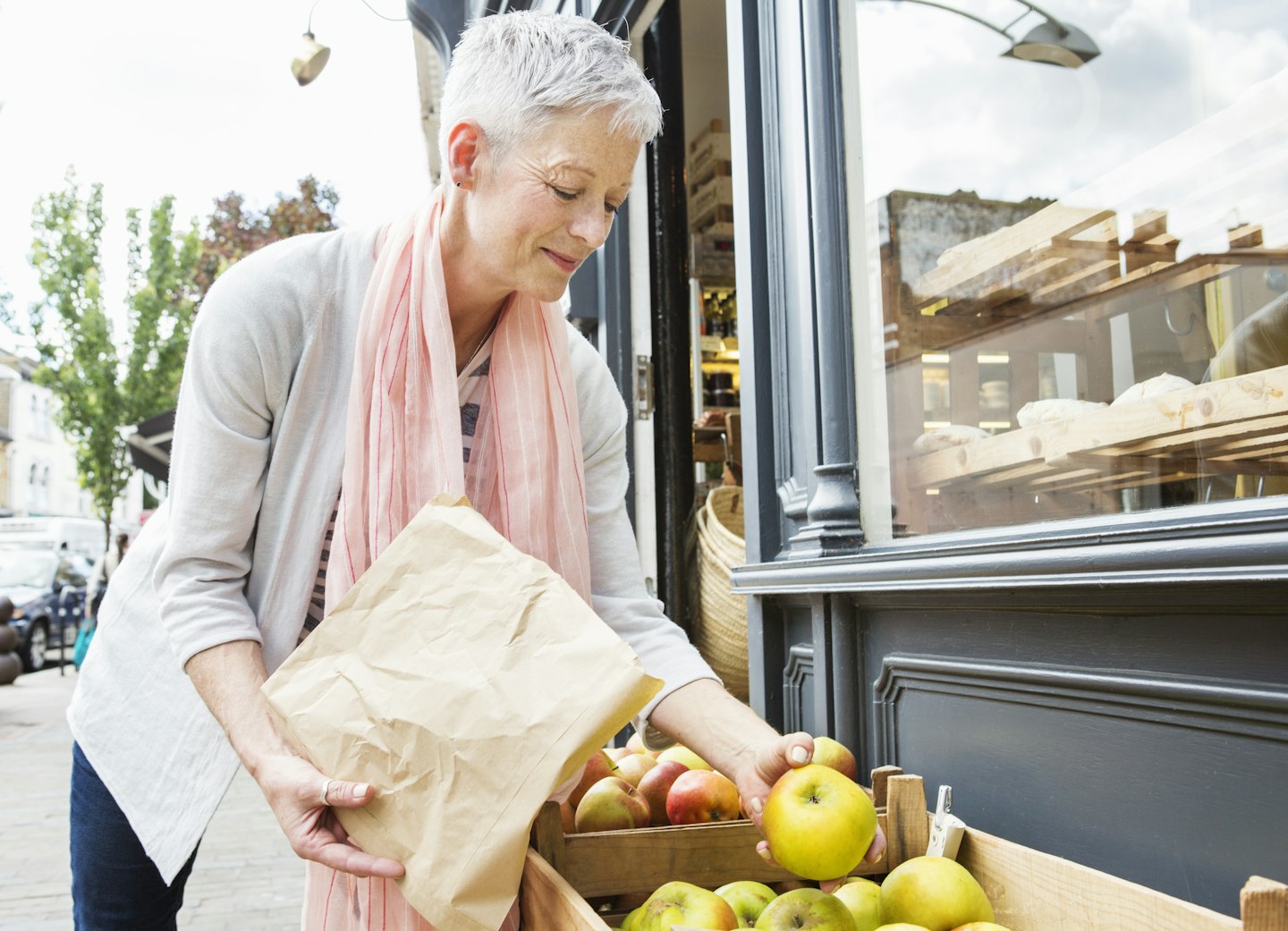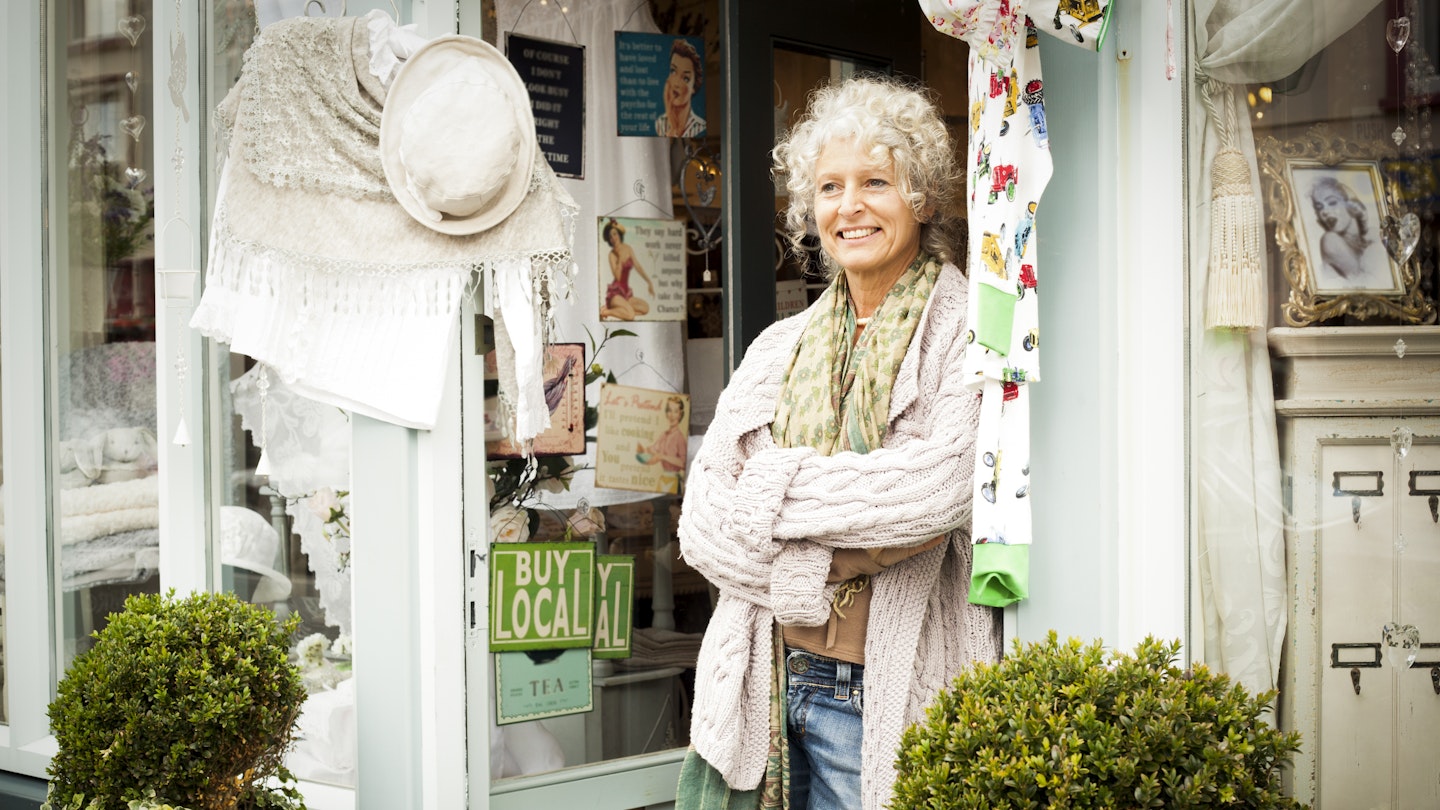There’s no doubt coronavirus has changed so much about the way we shop. Back in the new year we could have never foreseen the face masks, Perspex screens and the socially distanced queues that are now part and parcel of our shopping routine. But while these are visible and obvious shifts, there’s another more subtle trend emerging that could shape our shopping habits even beyond the end of Covid-19.
We’ve all heard the sad news of major retailers announcing big job cuts and store closures as footfall in the big cities has dropped by as much as 40 per cent.
But take yourself off to a smaller town shopping street or pop into the local village store and you might find it’s quite a different story.
In the months between March and June, sales in small, independent local stores shot up by 69 per cent while a quarter of British shoppers recently said they were visiting local stores more than they ever did before the pandemic. In addition, some retailers with shops in multiple locations reported generally better sales in their stores on local high streets compared to those in the city centres.
‘People have realised what’s available and been surprised’
Andrew Goodacre is CEO of theBritish Independent Retail Association (BIRA) and has been monitoring this move back to local closely. “Generally, what’s happened is that in lockdown, people realised what was available to them locally and have been pleasantly surprised by what they found so want to keep shopping there,” says Andrew. “After all, for many months the government was not encouraging the use of public transport, so people weren’t making the trip into the big cities or shopping centres and found they could often find exactly what they needed closer by.”
As local independent shops tend to be smaller, too, many shoppers have been attracted to what perhaps feels like a ‘safer’ shopping experience.
That’s certainly been the experience of Mandy Errington, who runs an independent clothing boutique in Ipswich and has noticed a definite uplift in customers. “Customers have said they feel safer coming into a smaller, independent shop like mine because we only allow one customer in store at once,” she says. “We also offer changing facilities – as we can isolate the clothes after – which is something customers might not be able to get in bigger stores.”
As well as safety concerns, another factor driving this change has been the very human stories of retailers stepping up to help in the midst of the pandemic.
‘Care for a community was rewarded by more local trade’
“We heard stories about local shops keeping bread and milk back for NHS customers or rallying round to deliver food to vulnerable people during lockdown and that kind of care for a community has been recognised and rewarded by more local trade,” says Andrew.

Meanwhile, many local retailers who may have been doing business the same way for generations, were forced to adapt their trading model, making them more relevant to their customers than ever before. “One of our members is a butcher who has seen in a boom in trade because during Covid-19 he started a service where people could order their meat online and collect so they don’t have to queue.”
But with surveys revealing many of us are keen to keep on shopping local even as restrictions ease, what might be the long-term implications of this trend?
On the one hand it’s obviously good news for the local retailers doing well and shopkeepers like Mandy say this has given them renewed hope the future. This trend could also be beneficial for the local economy as Andrew explains: “If I buy a coffee in a local independent café, that money will more readily recirculate in the local economy as that café shop owner and their staff are more likely to spend the profits locally, whereas if I spend my money in a big chain store the profits go to a head office and my money has less chance of benefiting the local economy.”
But on the flip side, is there a danger that the success of the local shop has to come at the expense of the city centre high street? “Obviously it does concern me to see job losses and struggling city centres, but I think the ideal is where we see a greater spread of money spent,” says Andrew.
In practice this might mean for example buying fruit and veg from the local grocers, meat from the village butcher’s and the rest of our household goods from the big city centre supermarket. “That way your money is spread around the community and it feels better for the whole economy,” says Andrew.
What the future will bring, no one can truly predict but as habits die hard, after months of more local shopping, maybe it’ll take more than the end of coronavirus to see us go back to how things were before.
What you had to say…
We had a huge response when we asked for your thoughts on the issue on our Facebook:
Jan Gaunt – ‘I started using a local butcher in lockdown who was brilliant and stocked all sorts of things that were hard to get such as flour and yeast. I will definitely continue to go there’
Kay Collingwood – ‘I’ve been using local farm shops and continuing to do so as it’s far better quality’
Helen Louise Thomas – ‘My local shop close to home is so friendly and helpful and much cheaper too’
Sharon Hanks- ‘I’ve always supported our local traders but find the town is much busier now. Hoping this is a good sign for the small independent shops who were losing out to the larger superstores’
